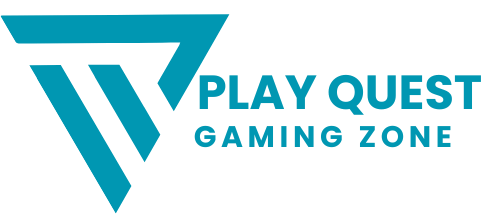Table of Contents
ToggleIn today’s fast-paced world, software apps are not just tools but essential lifelines for businesses. Think about it: a dashboard to monitor analytics, a chat app to connect with clients, or a scheduling tool that prevents your calendar from resembling a game of Tetris. With so many options available, understanding the landscape of software apps can feel overwhelming. But fear not. This guide is here to demystify the world of software applications and introduce you to how WebBizMagnet can elevate your business game. Buckle up, because this journey across the digital terrain will reveal tips, tricks, and trends that even your tech-savvy friends might not know about.
What Are Software Apps?

Software apps, short for applications, are programs designed to perform specific tasks or functions. Whether on a desktop, tablet, or smartphone, these applications streamline processes and enhance productivity. At their core, they serve to simplify complex processes, allowing users to achieve more with less effort.
Imagine waking up and relying on several apps ranging from your weather app that suggests what to wear, to your finance app that helps you keep track of spending. Software apps span a vast array of functions: they’re not just confined to games or simple utilities. Instead, they transform how various sectors operate, from healthcare to retail and even personal finance. With just a few taps or clicks, users access a treasure trove of capabilities that cater to their unique needs.
Types of Software Apps
Understanding the types of software apps available can help businesses choose what fits their needs best. Here are several categories to consider:
1. Productivity Apps
These include tools like Microsoft Office, Google Docs, and project management software like Trello or Asana, designed to boost efficiency and collaboration.
2. Communication Apps
Slack, Zoom, and Microsoft Teams fall into this category to help communication and collaboration, especially in remote work settings.
3. E-commerce Apps
From Shopify to WooCommerce, these applications empower businesses to sell products online, managing everything from inventory to customer interactions.
4. Marketing Apps
Tools like Mailchimp and HubSpot assist businesses in managing marketing campaigns, customer relationships, and analytics, making outreach more effective.
5. Financial Apps
Software like QuickBooks or FreshBooks assists with accounting, invoicing, and financial reporting, ensuring that businesses stay on top of their finances.
By recognizing these categories, businesses can better pinpoint which apps can integrate seamlessly into their operations.
Benefits of Using Software Apps for Business
Choosing the right software apps can lead to significant advantages for businesses. They offer efficiency, mobility, and enhanced customer satisfaction. Here are some prime benefits:
- Increased Productivity: With automation of tasks, employees can focus on strategic initiatives, rather than getting bogged down by mundane chores.
- Cost Efficiency: Many software apps provide subscription models, allowing businesses to pay only for what they need, cutting overhead costs.
- Enhanced Customer Engagement: Using apps for customer relationship management enables businesses to foster relationships and respond more effectively to client inquiries.
- Flexibility and Scalability: Modern apps often adapt to the evolving needs of businesses, growing alongside them without the need for complete overhauls.
- Data Analysis and Insights: Analytical tools embedded in software apps empower businesses to make data-driven decisions, leveraging insights for future strategies.
These benefits are just the tip of the iceberg, encouraging businesses to leverage technology for growth.
Challenges Faced by Businesses Implementing Software Apps
Even though the many advantages, businesses often encounter hurdles during the implementation of software apps. Understanding these challenges can prepare companies for smoother transitions:
- Integration Issues: New apps sometimes struggle to integrate with existing systems, leading to data silos and decreased efficiency.
- User Resistance: Employees may be hesitant to adopt new technologies, especially if they’re used to traditional methods that they’ve relied on for years.
- Cost of Implementation: While many apps are affordable, the associated costs of training, onboarding, or customizing the app to fit business needs can add up.
- Security Risks: Cybersecurity concerns are paramount as businesses must contend with safeguarding sensitive data against potential breaches.
- Maintenance and Updates: Regular updates and maintenance are essential for app performance but can take time and resources away from core business activities.
Identifying these challenges upfront allows businesses to strategize their approach, minimizing disruptions.
How WebBizMagnet Fits into the Software App Landscape
WebBizMagnet emerges as a crucial player in the software app ecosystem. Positioned to help businesses optimize their processes, it offers tailored solutions for varying business needs.
By providing customized applications, WebBizMagnet enhances user experiences and offers tools that align with contemporary business challenges. With a focus on adaptability and user-friendliness, it responds to the unique requirements of businesses, from startups to established enterprises. Companies leveraging WebBizMagnet gain access to robust functionalities ranging from project management to customer relationship enhancements.
This versatile platform demonstrates how one solution can bridge gaps in existing tech stacks, eventually helping businesses maximize their productivity without compromising user experience.
Case Studies: Successful Implementation of Software Apps
Numerous organizations have benefited from strategic implementations of software applications that cater to various sectors. Here are notable examples:
1. Retail Success:
A local retailer adopted an e-commerce software app that doubled their online sales in a year. By improving user interface and integrating customer feedback, they enhanced the shopping experience.
2. Healthcare Advancements:
A healthcare provider implemented a patient management app that streamlined appointment scheduling and records management. This resulted in a 30% reduction in administrative tasks, leading to better patient care.
3. Marketing Triumph:
A marketing agency used a productivity app to enhance project collaboration. Their teams reported a 40% increase in campaign efficiency due to reduced email threads and improved communication.
Future Trends in Software Apps for Business
As technology evolves, so do software applications. Here are some trends poised to shape the future of business software apps:
- Artificial Intelligence Integration: The incorporation of AI in software apps is set to boost automation capabilities, providing businesses with superior data analysis and predictive insights.
- No-Code/Low-Code Platforms: These platforms make it easier for non-tech-savvy users to create applications tailored to their needs, democratizing software development.
- Enhanced Security Features: Amid rising cybersecurity threats, businesses will prioritize security features, benefiting from apps designed with encryption and robust security protocols.
- Mobile Focus: As remote work becomes mainstream, mobile apps will gain traction, allowing employees to access critical business functions from anywhere, at any time.
- Customization and Personalization: Companies will increasingly seek customizable solutions tailored to their specific operations, ensuring a better fit and more effective tools.







